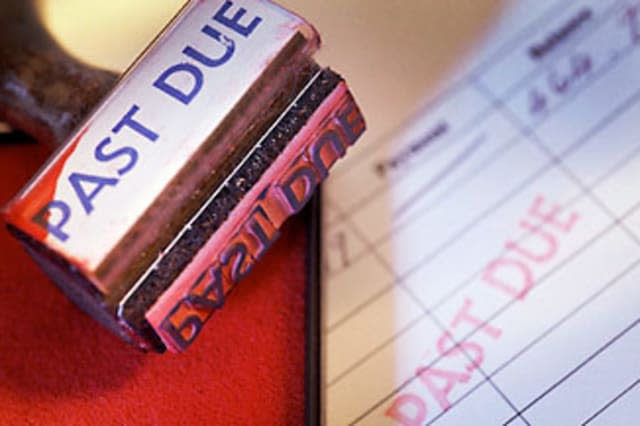Average debt hits £6,000, and is set to spiral in 2016

A new study has revealed that the average person owes more than £6,000 (excluding their mortgage). The amount we have borrowed each has shot up more than a third in the past two years, and more than a third of people say they will end up borrowing even more in 2016 - in some cases much more.
The research, by MoneySuperMarket.com, found that two thirds of people have either a loan, a credit card or an overdraft - and that the average person owes £6,086. The issue is especially severe for Londoners, who owe £16,380 on average each.
Almost half of all consumers have credit card debts, while a fifth are using their overdraft, one in ten have taken out a personal loan, and another one in ten have borrowed from friends and family.
%VIRTUAL-ArticleSidebar-debt-advice%
More than a quarter say they have borrowed more now than they had this time last year. In fact, the research showed that in 2015 consumers held debts of £5,898 on average each, while in 2014 the average amount owed was £4,412 - an increase of 38% in just two years.
Spiralling debt
This debt spiral looks likely to worsen in 2016. Some 15% of those in debt say they will try not to borrow any more this year, but that they may have no other choice if they face unexpected expenses. Another 11% already find it difficult to live within their means, so will use credit to fund the shortfall and an additional 10% will be forced to use credit to cover their essential monthly outgoings.
Unsurprisingly, when asked when their debt would be paid off, it was a distant dream for many. On average people expect to be paying it back for the next 18 months - while Londoners will take three years. In order to pay their debts, they say they'll need to spend 17% of their salary on debt repayment (27% in London).
Silver lining
On the positive side, there are signs that some people are already working hard to repay their debts. Those aged between 18 and 34 have seen the amount they owe fall from an average of £10,058 in 2015 to £8,547 this year. The over 55s have seen their debts fall from £2,528 in 2015 to £2,337. It's those aged 35 to 54 who are seeing their average debts climb.
There are also plenty of people working hard to keep their debt under control. Some 30% say that they pay it off in full at the end of the month, while another 30% pay as much as they can each month to clear the deficit. A fifth are sticking to a monthly budget, and another fifth have set up a standing order so the money they owe is automatically taken out of their bank account.
If you are finding it impossible to keep on top of repayments, and are unable to meet your monthly expenses without resorting to borrowing, then it's well worth talking to a debt charity - like Stepchange. They can talk you though your situation, and help you get your borrowing under control.
Kevin Pratt from MoneySuperMarket said another vital step is to make sure you are not paying over the odds in interest. He says: "This means securing the lowest rate possible so you can repay the debt in the shortest possible time."
"For example, it might be worth moving a credit card debt onto a card that charges zero per cent on balance transfers for a specified period, or opting for a low-rate credit card if you think it will take longer to pay your debt off. Alternatively a low-rate loan could be a way to consolidate several expensive debts so that less interest is paid. It's certainly worth exploring the options."
Find the right credit card for you





